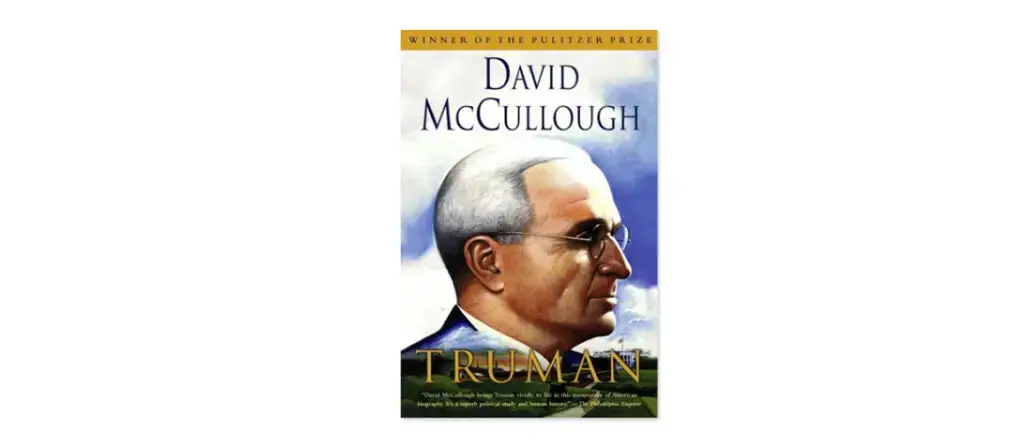Harry S Truman (his middle name was the letter S – it didn’t stand for anything, and he wrote it without a period) was the 33rd president of the United States, from 1945 to 1953. Sometimes called the accidental president, he never intended to hold the office, and until he ran for his second term, never wanted it.
Selected by the Democratic party to be Franklin D. Roosevelt’s fourth-term Vice Presidential running mate, Truman was Veep for only 82 days before FDR’s death catapulted the unassuming, and relatively unknown former Senator from Missouri into the boss’s chair.
The late (and in my view, great) historian and biographer David McCullough published Truman in 1992, an 1120-page (54 hours on audio – ask me how I know) account of practically every minute of Truman’s life, a book that went on to win a Pulitzer Prize.
Let’s put aside how Truman led the nation (although historians consistently rank him among the US’s best presidents), and instead look at something more relevant to most of us – how he led his staff.
Truman’s staff approved
McCullough writes that President Truman spoke of his 13-member White House staff as his “team”. This was long before the word was widely used in the world of work. They were devoted to him, and increasingly so as time went on. They liked him as a person, and greatly respected him as a leader, admiring his courage, decisiveness, and fundamental honesty.
Let’s stop right there. If, as a leader, you were to be intentional about being courageous, decisive, and honest, you’d probably do alright with your team, and get a lot of the results you want.
Regardless of what the country might have seen in the papers and newsreels of the day, the Harry Truman his staff saw was described by them as quiet-spoken, even-tempered, and uncommonly kindhearted. Add those things to your list of leadership aspirations.
Truman cared about his team
Before you tell me that the demands of your job don’t leave a lot of time for this soft “people stuff”, consider that the person who was viewed at the time to be the leader of the free world was described by those who worked with him as “extremely thoughtful, courteous, and considerate”. He was never too busy to think about or spend time with his team.
Truman understood the value of organizational culture
William Hopkins, Truman’s Executive Clerk, a guy who worked in the White House for 40 years, from Truman to Nixon said, late in his career that “no person in his experience had set a comparable tone.” If you’re keeping a list of your most valuable roles as a leader, put “setting the tone” on it.
Truman held daily huddles
OK, he probably didn’t call them that, but every day he was in the White House, Truman opened the door of the Oval Office precisely at 9:00am and held a brief, informal, but orderly and businesslike meeting with his team gathered around him. Its purpose was to inform, coordinate, and above all, listen, and to make sure that everyone knew what the others were doing – whose responsibilities were whose. Would something like that make your team more effective?
Truman earned Discretionary Effort
If you’re not familiar with the term Discretionary Effort, get that way. It’s the leader’s job to earn it, every day, from everyone on their team.
In an interview years after Truman’s term, his White House Counsel (and later Undersecretary of Agriculture) Charles Murphy said, “His staff returned his kindness with an extraordinary amount of hard work, voluntary overtime, and a wholehearted, single-minded devotion.” In other words, Discretionary Effort.
Perhaps the most telling legacy of Truman’s character is that after he left office, there were no tell-all books, no scathing exposés. And while his political views and actions are fair game, you’d be hard pressed to find that anyone ever spoke ill of Harry Truman the person.
Truman’s Press Secretary Charlie Ross may have put it best, in a personal letter to his boss, writing, “The greatest inspiration, Mr. President, has been the character of you. You as president. You as a human being.”
We could hardly do better than to get such a note from those we lead.
We can help you be this kind of boss. Get in touch to explore how.
Additional resources for Employee Engagement
book richard or bill to speak for your meeting
